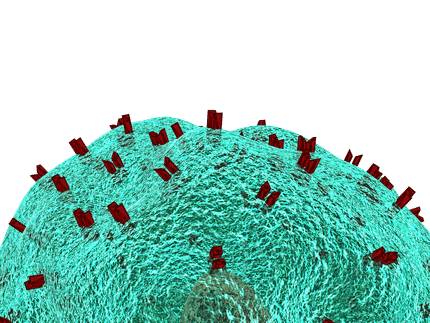Cardio3 BioSciences Completes Patient Enrolment in First Stage of Pivotal Trial of C-Cure in Heart Failure
45 patients enrolled in study designed to evaluate the ability of cardiopoietic cells to restore cardiac function
Advertisement
Cardio3 BioSciences announced that it has completed, two months ahead of schedule, enrolment in the first stage of its pivotal Phase II/III trial of C-Cure, a unique stem cell therapy for heart failure. Forty-five patients have now enrolled in the study which is being conducted at centres in Belgium and Serbia. The C-Cure trial will ultimately enroll 240 patients making it one of the largest randomized trials in regenerative therapies for heart failure.
C-Cure is produced by taking a patient’s own bone marrow cells and, through a proprietary process, differentiating them into cardiopoietic cells that can regenerate damaged heart muscle. The cardiopoietic cells are injected into the heart of a patient with heart failure where they are designed to behave identically to those cells lost in heart failure without carrying the risk of rejection, something that has not been achieved with previous cell therapies for this indication. C-Cure is the outcome of multiple years of research conducted at Mayo Clinic (Rochester, Minnesota, USA) and at the Cardiovascular Center in Aalst (Aalst, Belgium).
Safety data from this stage of the trial is expected to be available in May 2010. The second stage, which will recruit 195 further patients is expected to start in the third quarter of 2010 and involve further sites in Europe and in the United States. The trial design is a randomized, prospective, multi-center trial, to evaluate the safety and efficacy of C-Cure beyond optimal clinical care in patients with heart failure. The trial will also evaluate socio-economic implications of therapy.
Dr Christian Homsy, CEO of Cardio3 BioSciences said: “We believe C-Cure holds the promise for a treatment that could fundamentally change the future of heart failure patients, one of the world’s greatest medical needs. The fact that we have been able to fully enroll the first stage of the trial two months ahead of schedule speaks to the interest physicians have in this potential new therapy and brings us a step nearer a new treatment for a condition where at present current therapy does not address the underlying cause of the disease.”
Topics
Organizations
Other news from the department research and development

Get the life science industry in your inbox
By submitting this form you agree that LUMITOS AG will send you the newsletter(s) selected above by email. Your data will not be passed on to third parties. Your data will be stored and processed in accordance with our data protection regulations. LUMITOS may contact you by email for the purpose of advertising or market and opinion surveys. You can revoke your consent at any time without giving reasons to LUMITOS AG, Ernst-Augustin-Str. 2, 12489 Berlin, Germany or by e-mail at revoke@lumitos.com with effect for the future. In addition, each email contains a link to unsubscribe from the corresponding newsletter.


























































